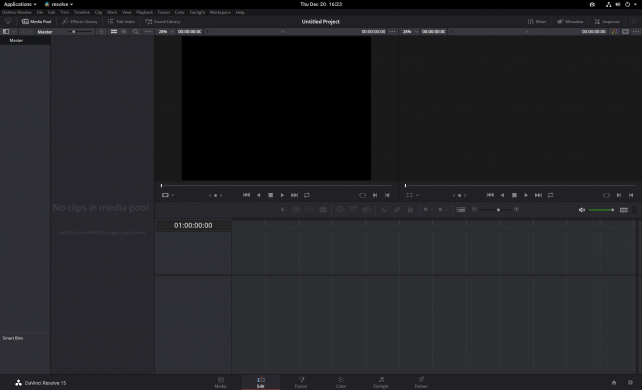AMD has released a new version of the Radeon Open Compute Linux stack with full OpenCL 2.0 support for AMD graphics cards
AMD Radeon Open Compute ROCm 2.0 released
The ROCm Platform brings a rich foundation to advanced computing by seamlessly integrating the CPU and GPU with the goal of solving real-world problems. This software enables the high-performance operation of AMD GPUs for computationally-oriented tasks in the Linux operating system.
Supported GPUs
Because the ROCm Platform has a focus on particular computational domains, we offer official support for a selection of AMD GPUs that are designed to offer good performance and price in these domains.
ROCm officially supports AMD GPUs that have use following chips:
GFX8 GPUs
"Fiji" chips, such as on the the AMD Radeon R9 Fury X and Radeon Instinct MI8
"Polaris 10" chips, such as on the AMD Radeon RX 580 and Radeon Instinct MI6
"Polaris 11" chips, such as on the AMD Radeon RX 570 and Radeon Pro WX 4100
GFX9 GPUs
"Vega 10" chips, such as on the AMD Radeon Radeon RX Vega 64 and Radeon Instinct MI25
Vega 7nm
ROCm is a collection of software ranging from drivers and runtimes to libraries and developer tools. Some of this software may work with more GPUs than the "officially supported" list above, though AMD does not make any official claims of support for these devices on the ROCm software platform. The following list of GPUs are likely to work within ROCm, though full support is not guaranteed:
GFX7 GPUs
"Hawaii" chips, such as the AMD Radeon R9 390X and FirePro W9100
As described in the next section, GFX8 GPUs require PCIe gen 3 with support for PCIe atomics. This requires both CPU and motherboard support. GFX9 GPUs, by default, also require PCIe gen 3 with support for PCIe atomics, but they can operate in most cases without this capability.
At this time, the integrated GPUs in AMD APUs are not officially supported targets for ROCm.

DaVinci Resolve running with ROCm OpenCL 2.0 under Debian 10 Buster
AMD Radeon Open Compute ROCm 2.0 released
